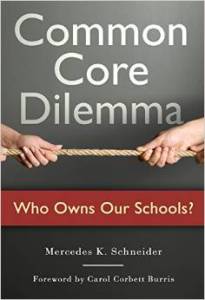Senate ESEA Draft: Review of Approved Amendments, Part I

On April 16, 2015, the Senate education committee approved the Alexander-Murray draft of the reauthorization of the Elementary and Secondary Education Act of 1965 (ESEA), a 601-page document entitled, The Every Child Achieves Act of 2015.
The draft approval was accompanied by 29 amendments, which can be found on this Senate ed page.
I reviewed the entire original 601-page Alexander-Murray draft in a series of six posts that can be accessed here.
In this post, I begin my review of the 29 amendments with the first 10. (I will review the remainder in subsequent posts.)
I am reviewing the amendments in alphabetical order by file name. Below each file link is my review for that particular amendment.
Here we go:
Sixteen pages long. Adds Section 1202: “Grants for Enhanced Assessment Instruments”
States that apply for this grant under Title I (amount to be “not less than $1,500,000 per fiscal year) can use the money to develop assessments aligned with their “challenging State standards”; these assessments can be those designed for “measuring student progress or academic growth over time, including multiple measures,” or “comprehensive academic assessment instruments” which can include “computer adaptive assessments, and portfolios, projects, or extended performance task assessments.”
This grant comes with requirement of a publicly-available audit of the state and local assessment systems, including examination of “the purpose for which the assessment was designed and the purpose for which the assessment is used, including assessments designed to contribute to systems of improvement of teaching and learning” (pg. 6). This is not a mandate for states to use student tests to measure teachers. The language does not assume that assessment design and usage are one and the same, and it is possible for this publicly-available audit to detect states using tests designed to measure student achievement as wrongly being used to assess teacher performance.
States must also provide information on the state laws mandating the state’s assessments; the time it takes to disseminate results, assessment costs, and assessment schedules.
Local education agencies (LEAs) using this grant money (as such is passed from state to LEA) must also conduct publicly-available audits of their assessment systems.
The audits require an opportunity for education stakeholder feedback, which is to include the extent to which assessment data are made readily available; time spent on test prep and time spent on administering assessments.
Based upon the complete audit (including education stakeholder feedback), each state must submit a plan to the US secretary for improving the state assessment system, which might include cutting unnecessary assessments by buying out the testing contract (if necessary), reducing time between assessment administration and dissemination of results– and which might include eliminating assessments “used for accountability purposes” and that are not valid and reliable and that are inconsistent with nationally recognized professional and technical standards” (pg. 10).
The remainder of this amendment includes revision of some details of the federal government’s funding of the National Assessment of Educational Progress (NAEP). The total per-state funding for NAEP will remain at at least $3 million per fiscal year.
This one-page amendment requires that state report cards include information on “the Senate ESEA Draft: Review of Approved Amendments, Part I | deutsch29:

